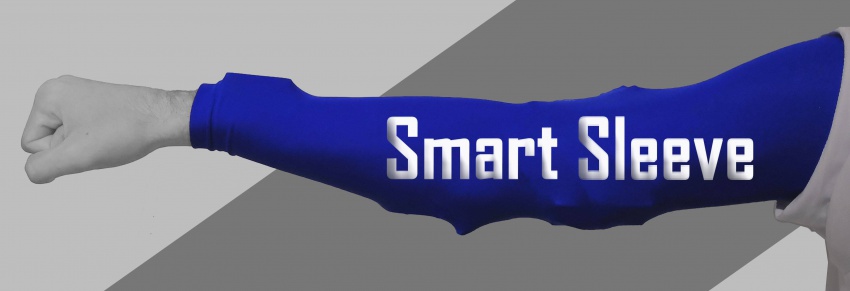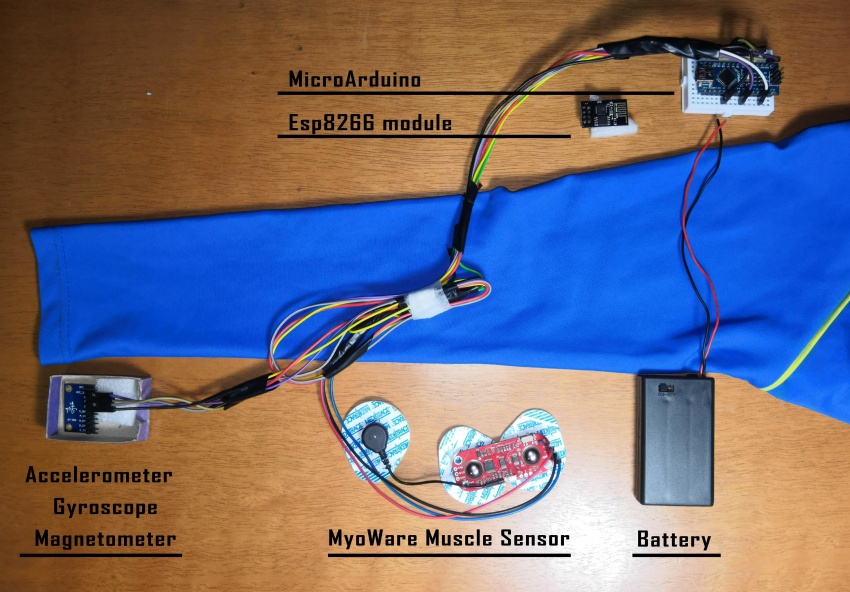Difference between revisions of "Shared:H8A2"
| Line 63: | Line 63: | ||
=='''The Wearable'''== | =='''The Wearable'''== | ||
| − | < | + | <youtube>Ei8LQ3Nb_94</youtube> |
| − | + | ||
| − | + | ||
| − | + | ||
Revision as of 02:23, 12 June 2018
H8A2 - Smart Sleeve
Authors
- Pedro Santos
- Caio Santos
Tutors
- Henriette Bier (Associate Professor Robotic Building TUD)
- Alex Liu Cheng (PhD student Robotic Building TUD)
Colaborators
- Marcela Sabino (Director of Museum of Tomorrow Laboratory)
- Ricardo Weissenberg (Creative Maker of Museum of Tomorrow Laboratory)
- Eduardo Migueles (Creative Maker of Museum of Tomorrow Laboratory)
The idea
The Smart Sleeve is a proof of concept of a wearable capable of interacting with a smart environment. The project was developed during a 3 days workshop in the 8th edition of Hiperorgânicos - International Symposium on Research in Art, Hybridization, Biotelematics and Transculturalism that took place between the 22nd - 27th of May 2018 on Museu do Amanhã, Rio de Janeiro - Brazil.
Henriette Bier and Alexander Liu Cheng were aiming at this workshop to introduce students to Operation Design-to-Robotic (D2RPO) to achieve physical and sensory reconfiguration.
What if we could move objects just by pointing at them?
How we did it
Smart Sleeve is composed by an accelerometer, a gyroscope a magnetic compass and a myoware muscle sensor. The input of its data is read by an atmega 328 and sent by a 433Mhtz RF transmitter to a receiver connected to a raspberry, where all data is ran into Processing. Where it generates a virtualization of a smart environment.
The wearable is able to recognize arm and hand gestures as well as their relative position in an intelligent environment. These abilities combined with some processing make it possible to send commands to an actuator in a smart environment just by pointing to the desired object.
The Wearable
Source code:

